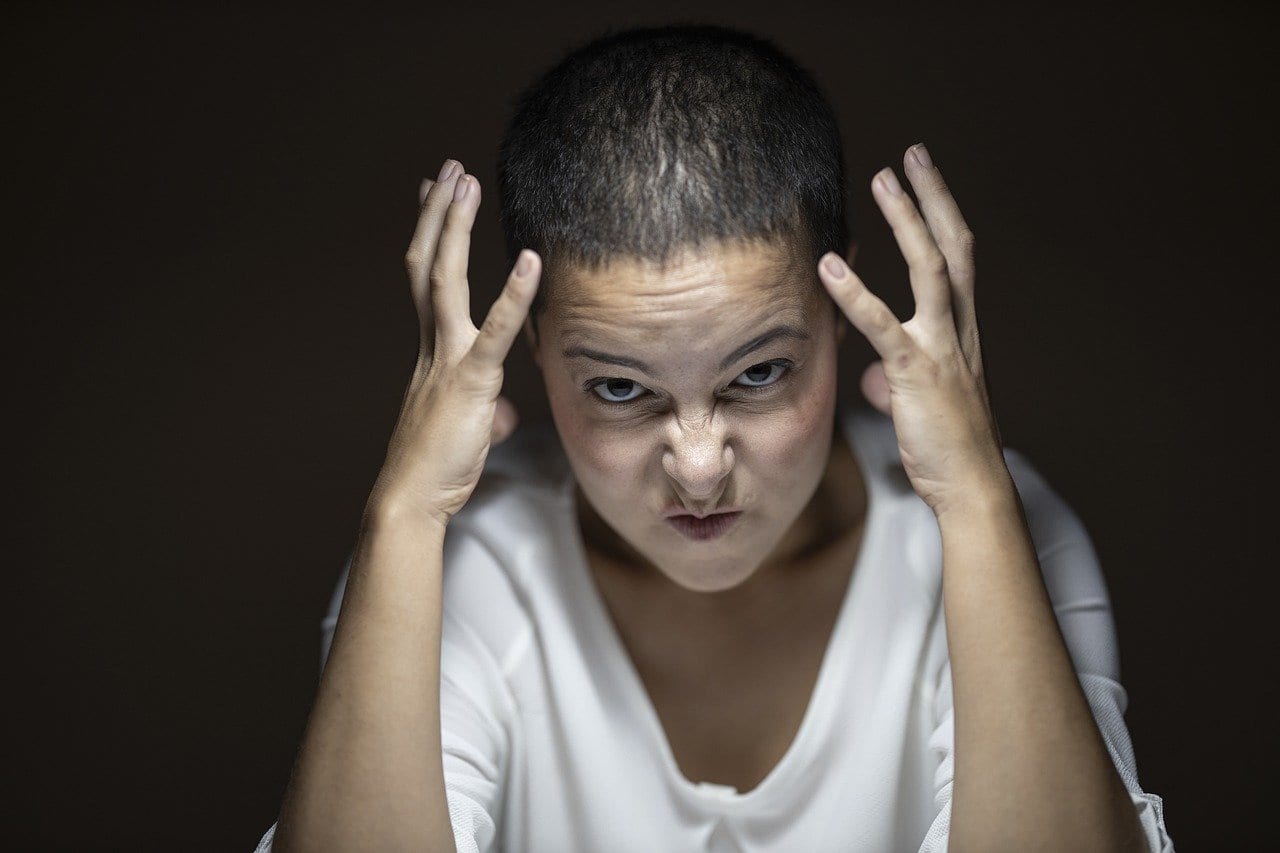I’ll go to jail before I hit menopause!
I kid you not, these words, “I’ll go to jail before I hit menopause”, were written in the chat by one of the attendees of my PAUSE-itive Get-Together events.
Several woman mentioned their irritability in perimenopause. People around us say and do things that provoke our internal reaction, leading to an external overreaction that no-one, ourselves very much included, expects or understands. Take your pick of adjectives: over the top, out of character, overblown, uncalled for, something I regret or feel embarrassed about later. But “I’ll go to jail before I hit menopause” is not a good option!
For most women irritability is less of a problem in postmenopause; on the other hand not giving a damn about what others think seems to be more common in postmenopause.
How can you minimize irritability in perimenopause?
Breathe awareness is a calming technique you can use every time you feel yourself becoming irritated, before you say or do something you’ll regret later.
I highly recommend this breathing class, How We Breathe Matters, I took with Deborah Rubin last fall to lower my stress. It was one of the best $20 I ever spent.
Deborah says “Healthy breathing practices are one of the most effective ways to stabilize your emotions, build resiliency, improve health issues and cultivate immune and respiratory health, all of which are especially beneficial while you navigate this unique time together.” She refers to the pandemic but you can add perimenopause to the mix.
Yoga is also effective. You can learn to do it and then take 5-10 minute yoga breaks throughout the day to stay calm, or whenever you feel you’re getting irritable. The only instructor who was able to make me fall in love with yoga and benefit from it was Yoga with Adriene, free online. She started 2021 with a Breathe 30 Day Yoga Challenge that you can start any time. I’ve done it and I recommend it.
I was introduced to Yoga Nidra by Restore Yourself with Michelle. All I had to do was lie down comfortably and allow her voice and instructions to slow down my brain waves and feel very calm and thought-less during the 35 minutes of the practice. I also felt very relaxed and energized for hours afterwards.
Tai Chi is something I’m learning this year. It’s continuous, soft, slow, rhythmical movement with the breath. I’m a swimmer and because of the pandemic I haven’t been able to swim for 5 months and I find Tai Chi the closest activity to swimming, albeit much dryer and slower!!
Meditation. Many apps teach you how to get started and help you to practice daily. My version of meditation is called “brain time-outs”. I get away from my desk, stand in front of a window, look out as far as my gaze can go (to give my eyes a break from screens), and I keep my brain focused on my breath. I allow no other thoughts for 5-10 minutes. Very calming and brain-cleansing! This is also the technique I use to fall back to sleep in the middle of the night when the odd night sweat wakes me up. It works 99% of the time.
Stay connected. If you have a friend who understands what you’re going through and is willing to lend an ear so you can dump it all out, it may be very cathartic and helpful.
These days there are a lot more causes of irritability than fluctuating hormones: the pandemic, lockdown, kids at home, homeschooling, bored teenagers moping around the house, working from home, too much work, not enough work, etc. can all contribute to stress. If you think you are stressed out, not just irritable, take action.
February is American Heart Month and it is important to remember that stress can increase your risk for heart disease. If you are stressed, take care of it – talk to your doctor about it.
To learn more about stress, watch this North American Menopause Society (NAMS) video What Women Need to Know About where Dr. Marla Shapiro interviews Dr. Rebeca Thurston, Pittsburgh Foundation Chair in Women’s Health and Dementia and Professor of Psychiatry, Clinical and Translational Science, Epidemiology and Psychology about the insidious effect of stress in our modern lives.
Teresa Isabel Dias is a pharmacist and Certified Menopause Practitioner (NCMP) who provides education and support on symptom management for women at work and at home so they’ll feel like themselves again and enjoy a vibrant and productive life.
Grab a quick guide and subscribe to the MenopausED Newsletter on the MenopausED home page.
If would like to know how Teresa can improve your menopause transition then schedule a complimentary Discovery Call at MenopausED.org.




